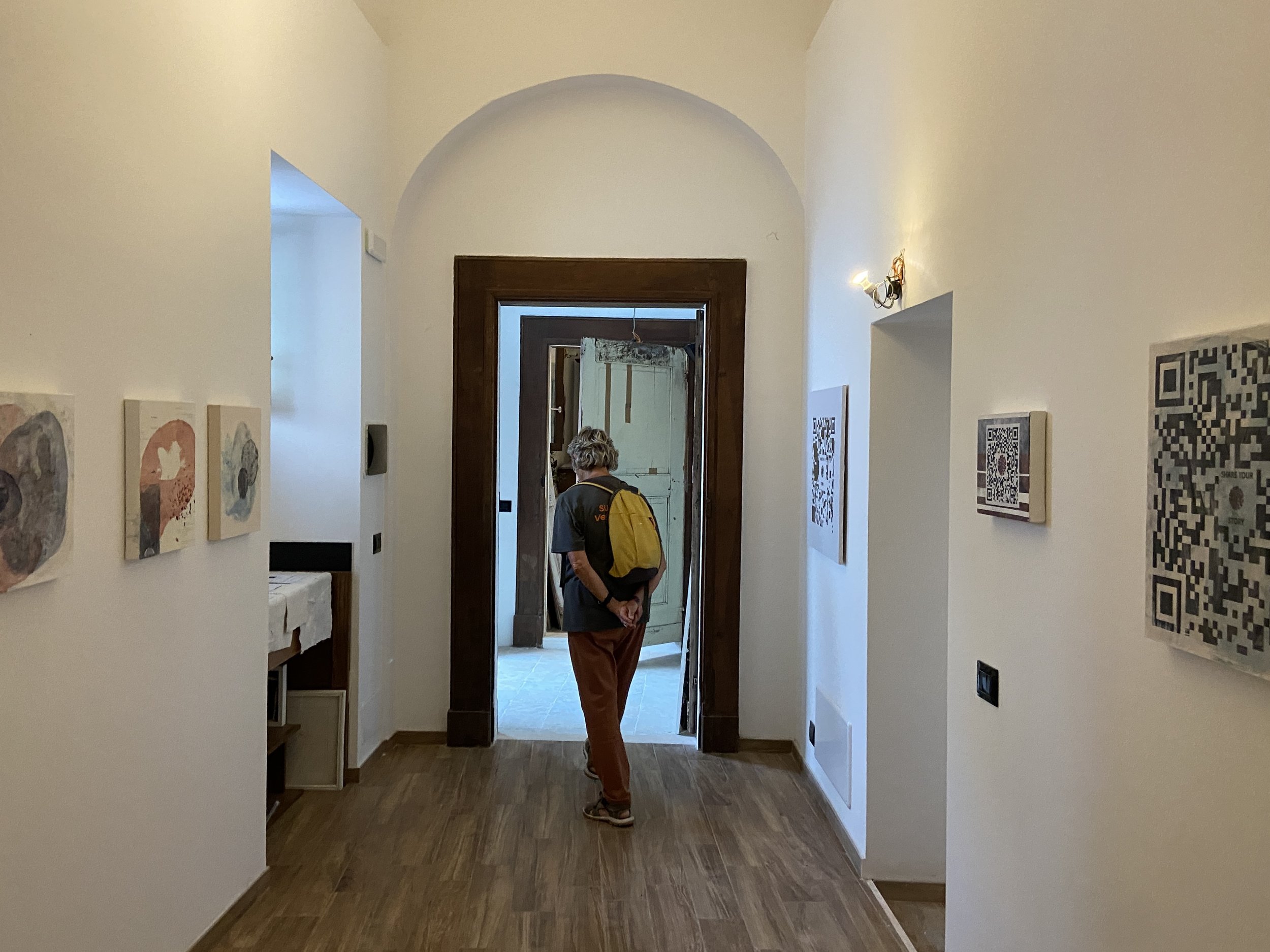Petna Ndaliko Katondolo
The works of award-winning filmmaker and educator Petna Ndaliko Katondolo (Congo) are acclaimed for their provocative Afro-futuristic artistic style, which engages historical content to address contemporary sociopolitical and cultural issues. He graduated in stage direction from the Experimental, Cultural and Ecological Workshop in Tchimba. Victims of War, the first play he wrote, explores the memories of the survivors of the genocide in Rwanda in 2004. He is founder and Artistic Director of the Yole! Africa cultural centre in Goma and the Congo International Film Festival. He has been artist-in-residence at the Stone Center for Black History and Culture at the University of North Carolina at Chapel Hill.
Katonolo has been an ongoing artist-in-residence at Fontecchio International since 2022, using his time here to continue to develop and edit his current film projects.
FILMOGRAPHY
(selection, all short) Wakimbizi/Refugees (2002), Lamokowang/Calabash (2004), Digital 01 (2004), Threatened Fate (2005), Jazz Mama (2010, doc), Decoding (2019, doc), Matata (2019), Kumbuka (2021)
La Tania & Paz de la Calzada
In September 2023, the Fontecchio International Airport welcomed award-winning flamenco dancer/choreographer La Tania and painter Paz de la Calzada, who specializes in site-specific murals, installations and public art. While both are originally from Spain, they each independently found home in the San Francisco Bay Area arts community. which is where they met Fontecchio International Airport founder, Todd Thomas Brown, over 15 years ago. This summer, while both Paz and Tania were visiting Spain, they generously proposed a side excursion to Fontecchio, and to dedicate a private ritual and performance to the reopening of the Airport in its new location. The performance ritual addressed the theme of home and belonging. Inspired by the myth of Persephone, her journey through the underworld and the power of the four elements, the artists investigated the potentiality of using dance and ritual to navigate the challenges of being nomadic, and to redefine the meaning of “home”. The ritual consisted of the preparation and burning of Queimada (Galician aguardiente) to a Galician incantation, recited in the three languages of Galician, Italian, and English, offered as a blessing to the new space. Improvising to the burning of the Queimada and the resonance of the Galician incantation, La Tania offered her dance.
Tina Escaja
Images from the opening of Mar y Virus…
In July/August 2023, the Fontecchio International Airport welcomed Dr. Tina Escaja for a month-long residency sponsored by the Humanities Center at the University of Vermont (US). In this collaborative residency, Tina worked with Fontecchio International founder Todd Thomas Brown to create a series of mixed media works that incorporated her use of a QR code in collecting stories across the globe during the course of the COVID-19 pandemic. The series represents the culmination of the project, entitled Mar y Virus, and was presented on August 18, 2023, as the inaugural exhibition of the Fontecchio International Airport in its new seat at Palazzo Galli.
Tina Escaja (born 1965 in Zamora, Spain), also known as Alm@ Pérez, is a Spanish-American writer, activist, feminist scholar and digital artist based in Burlington, Vermont. She is a Distinguished Professor of Romance Languages and Gender & Women's Studies, and the Director of the Gender, Sexuality and Women's Studies Program at the University of Vermont. She is the winner of the International Poetry Prize Dulce María Loynaz, and the National Latino Poetry Award for Young Adults, Isabel Campoy-Alma Flor Ada. She is considered a pioneer in the field of electronic literature in Spanish. She is a full member of the North American Academy of the Spanish Language (ANLE), and Corresponding member of the Royal Spanish Academy (RAE).
Her creative work has been defined as a crossover between literary writing, digital art, video and multimedia projects.
In the year 2000 she published the hypertextual poem VeloCity, considered a pioneer in the field of digital poetry in Spanish, and one of "the first hypertextual works written by women."
According to scholars and media critics María Goicoechea and Laura Sánchez, "Hypertext is, for Tina Escaja, the insignia of this new cyberfeminism that proposes a ‘non-essential modern subject’." The same critics note a change in this perception in Escaja's project Código de barras, a project based on barcode technology: “now technology is used to compel us to think about a perturbing reality of control and dominion.”
Learn more about Tina here.
















